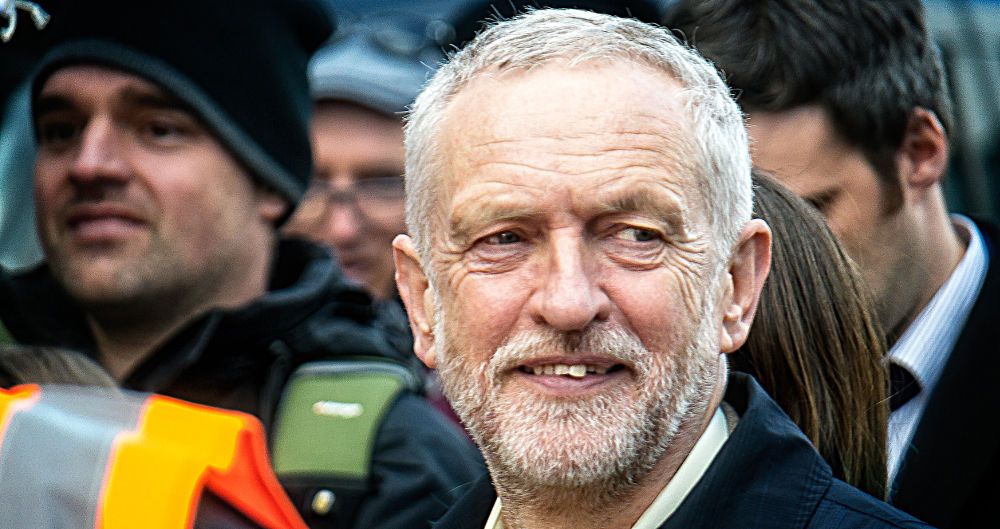As 2018 dawns, those who believe Labour has buried its Blairite past argue the role New Labour played was a temporary aberration.
From sending in Sheriff Officers to humiliate working people during the anti-Poll Tax struggle, initiating the war in Iraq, occupying Afghanistan, privatising our NHS and schools using discredited PFI schemes, attacking the benefits of single parents, withdrawing the rights of migrant workers and standing shoulder to shoulder with the Tories during the independence referendum, it was all a temporary straying from the socialist path.
But the party’s 2017 Manifesto ‘For the Many, Not the Few’, described as ‘radical’, casts doubt on their change theory because like a ginger bottle, all the fizz escapes when you open it.
Labour’s civil war
Labour promises to maintain Britain’s huge military expenditure… “The UK defence industry is world-leading, and Labour will continue to support development and innovation in this sector.”
It will maintain NHS prescription charges in England [now abolished in Wales, Scotland and Northern Ireland]. It refuses to support ‘no cuts budgets’ in local government. It suggests increasing Corporation Tax to 26p from 19p (under Thatcher it was 52p) meaning it would still be the lowest in the industrialised world.
One of Corbyn’s economic advisors Ann Pettifor cheers the manifesto for its ‘pragmatism’ pointing out, “You only have to look at past Labour governments. The party is quite prepared to work with business and the City of London.”
And these are by no means the only ominous warnings that change will not happen. Labour are all over the place on Brexit, on public ownership, on the abolition of The House of Lords and the monarchy, on Syria.
The picture painted is of a party conflicted and irresolute.
[x_pullquote type=”right”]There is no sign of peace breaking out in Labour’s incipient civil war[/x_pullquote]One should not underestimate the deep divisions within ‘the people’s party’. I was a Labour Party member in my youth long enough to realise it is ultimately an electoral machine.The Left and Right tolerate each other in order to share the spoils yet they conceal at least two different parties within. The Left wishes to challenge the British establishment, the Right wishes to join it.
My Labour MP Ian Murray hates Corbyn with a vengeance not demonstrated towards the Tories. No, he is rather fond of the Tories. Without their votes in Edinburgh South he would never have kept the Nationalists out.
And as the BBC documentary ‘The Summer that Changed Everything’ revealed, there is no sign of peace breaking out in Labour’s incipient civil war anytime soon.
The right wing are biding their time and regrouping. Shadow Brexit Secretary Keir Starmer is seen as the next challenger for Corbyn’s crown. It is not a matter of if but when they again try to oust him.
The Scottish leadership contest was also described by Richard Leonard’s campaign as ‘a bitter, uncomradely contest which exposed deep divisions in the party. Divisions that will not be resolved by mere calls for unity’. Labour then is a party confused and divided.
More important than Labour’s infighting is the economic and political crisis facing working people. 475,000 workers in Scotland (5.5 million across the UK) are trying to get by on poverty wages.
Another 177,000 families are waiting for a home. And 1 in 3 children endure chronic, serious disadvantage. Working class people are suffering the longest fall in their standard of living since records began.
And what remedy has ‘JC’ to offer? Corbyn tells them, as all previous leaders have done, to ‘wait for the next Labour government.’
All experience shows that is the last thing they should do. The Birmingham bin men did not wait. They went on strike against cuts proposed by the city’s Labour authority.
Nor did the ‘BiFab’ construction workers wait. Nor ‘Scrap the Cap’ campaigners in the public sector repeatedly denied a pay rise.
Corbynmania
The ‘Corbynmania’ epitomised by Momentum and singing ‘Oh Jere-my Cor-byn’ at this year’s TUC Conference recalls warnings Antonio Gramsci offered the workers movement about ‘the cult of the personality’.
This ‘leave it to the celebrity leader’ attitude didn’t work with Bernie Sanders, Nicola Sturgeon, George Galloway or Tommy Sheridan. And it won’t work with Corbyn either.
This approach masks the lack of a serious programme or strategy to defeat the embedded ruling classes. It is a fad that passes and leaves nothing behind.
Building a socialist future must be based on firmer foundations. Political education and ideological grounding are key. ‘Battle hardened troops’ are essential. As the SNP enter their own doldrums—having kicked independence into the long grass – Labour is a party grappling with its own existential crisis.
In these conditions the Scottish Socialist Party can build support by taking up the issues working class people care about most and ensuring progress is made through mass action.
This article was previously published in issue 502 of the Scottish Socialist Voice.

